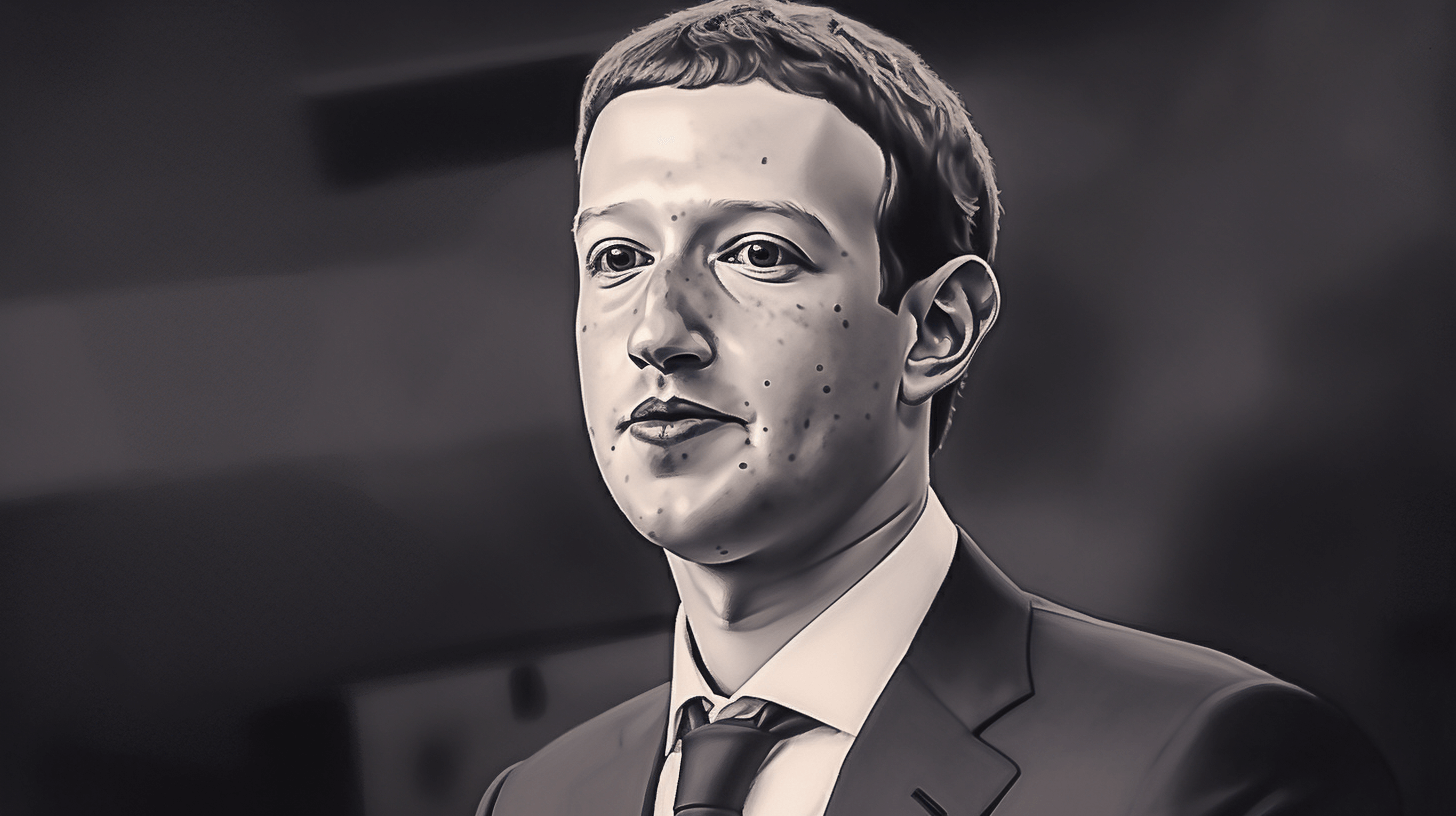🍃💼 Da Climate Kine Talk Story No Mo’ Buzz, Brah: Greenwashing and Woke Capitalism Making Big Businesses Stay on da DL
Back in da last week of April, about tree outta ten voting kine shareholders at Goldman Sachs, Wells Fargo and Bank of America wen’ show support fo’ resolutions dat wen’ ask da banks fo’ explain how dey dealing wit’ climate change. Same time, Morningstar, da one data provider, wen’ say dat da first quarter of 2023 wen’ da weakest fo’ da launch of new “sustainable” funds in three years, cuz’ investors wen’ get all sensitive to da ‘greenwashing’ accusations, or da misrepresentation of climate initiatives. Dis wen’ happen afta’ one congressional measure fo’ prevent retirement plan managers from even considering social and climate issues in their investments (which President Biden wen’ veto). 🗳️💰🌍
So how da big kahuna of da businesses fo’ handle all da mixed up kine signals ’round E.S.G. – standing fo’ environmental, social, and governance factors? One side, da heavy-duty investors calling on dem fo’ show dey take climate change serious kine. Da odda side, da guys who against “woke capitalism” pushing fo’ da CEOs fo’ focus just on making money fo’ their shareholders. 🔄🔀👥
Dis no new kine problem, yeah? CEOs been debating da right role of corporations – fo’ make profits fo’ shareholders or fo’ serve society big kine? – fo’ more than one hundred years. 🕰️💰🌎
Da Michigan Supreme Court wen’ ponder dis question back in 1919, when da Dodge braddahs, as shareholders in da Ford Motor Company, wen’ grumble dat Henry Ford was taking da profits and putting ’em into expanding da business and making da price of cars cheaper, instead of paying dividends. Over 50 years befo’ Milton Friedman would say loud and clear dat an executive’s responsibility was fo’ make “as much money as possible,” Ford wen’ argue da opposite, saying da purpose of a corporation was fo’ increase employment and pay good kine wages, and only by da way fo’ make money. Da court wen’ side wit’ da Dodges. 👨⚖️🚗💵
Some business leaders wen’ agree wit’ Ford. Owen Young, da chairman of General Electric, wen’ say in da 1920s dat, on top of paying a “fair rate of return,” corporations had one obligation to labor, customers and da public. Jack Welch, one future General Electric leader, wen’ become one champion of shareholder value. But he later wen’ tell da Financial Times, afta’ da 2008 financial crisis, dat shareholder value was actually “da dumbest idea in da world” and dat “your main people are your employees, your customers and your products.” 🗣️💡👥
Da struggle between making value fo’ shareholders and serving a wider set of stakeholders tends fo’ get really intense during societal shifts, says Jennifer Howard-Grenville, one professor at da University of Cambridge’s Judge Business School. Da 2008 financial crisis was one kine. Da climate crisis, she says, is anoddah. 🌪️💥🌍
How da CEOs fo’ balance da reality of climate wit’ da pressures from da anti-woke crowd? Some business leaders wen’ respond by denying there is any contradiction – long as you take da long view. Paul Polman, da chief executive of Unilever from 2009 to 2018, wen’ insist dat da future of da consumer group was tied tight to da planet’s. Unilever had been around fo’ over 100 years, he wen’ say in one speech da year afta’ he wen’ get appointed. Fo’ keep existing fo’ hundreds more years, needed shareholders who wen’ look far ahead, too. To those who didn’t, Mr. Polman wen’ say, “don’t put your money in our company.” 🌏💵🔮
from 2009 to 2018, wen’ insist dat da future of da consumer group was tied tight to da planet’s. Unilever had been around fo’ over 100 years, he wen’ say in one speech da year afta’ he wen’ get appointed. Fo’ keep existing fo’ hundreds more years, needed shareholders who wen’ look far ahead, too. To those who didn’t, Mr. Polman wen’ say, “don’t put your money in our company.” 🌏💵🔮
All was good, until one 2017 bid from Kraft Heinz, which later wen’ get pulled back, wen’ force Mr. Polman fo’ quick kine boost Unilever’s stock price through cost cutting, dividend increases and a share buyback. Da problem wit’ Polman’s strategy is dat plenty investors and lenders like fo’ see their money, if not now, then soon. As Stuart Kirk, da former global head of responsible investment at HSBC Asset Management, wen’ say in a speech last year dat made him leave: “At one big bank like ours, at HSBC, what do people think the average loan length is? It’s six years. What happens to da planet in year seven is actually no matter to our loan book.” ⏳💰📉
Georg Kell, da chairman of Arabesque, a group of financial technology companies, can say he invented da E.S.G. label. He was da founder of da United Nations Global Compact, which, in 2004 launched one effort fo’ “better integrate environmental, social and corporate governance issues in asset management, securities brokerage services and associated research functions.” He wen’ say even CEOs who insist on making long-term climate pledges no goin’ be able to stick to them. It’s like marriage vows, Mr. Kell says. Divorce rates show dat half of couples won’t live up to them. 💍💔💼
No help dat E.S.G. wen’ become part of da U.S. culture wars, wit’ Gov. Ron DeSantis of Florida and his followers yelling at those who make sustainability promises. Mr. Kell can see da sense in CEOs being quiet about their climate commitments. “Avoid unnecessary political exposure. Maybe don’t use the term E.S.G. fo’ the next year or two until the presidential elections are over,” he advises. 🇺🇸📣🌿
CEOs also gotta accept dat, outside of the political crossfire, external events might block their environmental intentions. Russia’s war on Ukraine made clear dat our economies cannot do without fossil fuels yet. Mr. Kell agrees with Larry Fink, the chairman and Chief executive of BlackRock and a supporter of stakeholder capitalism. In his 2023 letter to investors, Mr. Fink admitted that the move to sustainable energy “will not be a straight line. Different countries and industries will move at different speeds, and oil and gas will play a vital role in meeting global energy demands through that journey.” 🛢️⚔️🌍
But Mr. Kell argues dat the direction of travel stay clear. “Decarbonization is here to stay,” he said. No matter da pressure from politicians or shorter-horizon investors, Mr. Kell says corporate leaders should make sure, even if gotta be quiet kine, that “your story, your strategy is solid, updated all da time.” 📈🍃📚
As fo’ greenwashing, Ms. Howard-Grenville tells CEOs no need get scared into overpromising. “It’s always more smart and safe to do more than you say than , obviously, fo’ say more than you do.” 🗣️💡👌
Michael Skapinker, one London-based business writer and da author of “Inside the Leaders’ Club: How Top Companies Deal With Pressing Business Issues,” wen’ write dis story. But rememba’, in da end, no matter da language, we all get one part fo’ play in dis big world. Let’s malama da ‘aina (take care of the land), and each oddah, yeah? No need fo’ get all talkative about it, just do da right thing. 🌍💕👏
NOW IN ENGLISH
🍃💼 The Climate Talk Has Lost Its Buzz: Greenwashing and Woke Capitalism Make Big Businesses Keep Quiet
In the last week of April, about three out of ten voting shareholders at Goldman Sachs, Wells Fargo, and Bank of America showed support for resolutions that asked the banks to explain how they’re dealing with climate change. At the same time, Morningstar, a data provider, stated that the first quarter of 2023 was the weakest for the launch of new “sustainable” funds in three years because investors became sensitive to ‘greenwashing’ accusations, or the misrepresentation of climate initiatives. This happened after a congressional measure to prevent retirement plan managers from even considering social and climate issues in their investments (which President Biden vetoed). 🗳️💰🌍
So how are the big businesses handling all the mixed signals around E.S.G. – standing for environmental, social, and governance factors? On one side, the heavy-duty investors are calling on them to show they take climate change seriously. On the other side, those who are against “woke capitalism” are pushing for the CEOs to focus only on making money for their shareholders. 🔄🔀👥
This is not a new problem, right? CEOs have been debating the right role of corporations – to make profits for shareholders or to serve society at large – for more than one hundred years. 🕰️💰🌎
The Michigan Supreme Court pondered this question back in 1919, when the Dodge brothers, as shareholders in the Ford Motor Company, complained that Henry Ford was taking the profits and putting them into expanding the business and making the price of cars cheaper, instead of paying dividends. Over 50 years before Milton Friedman would loudly proclaim that an executive’s responsibility was to make “as much money as possible,” Ford argued the opposite, saying the purpose of a corporation was to increase employment and pay good wages, and only incidentally to make money. The court sided with the Dodges. 👨⚖️🚗💵
Some business leaders agreed with Ford. Owen Young, the chairman of General Electric, said in the 1920s that, on top of paying a “fair rate of return,” corporations had an obligation to labor, customers, and the public. Jack Welch, a future General Electric leader, became a champion of shareholder value. But he later told the Financial Times, after the 2008 financial crisis, that shareholder value was actually “the dumbest idea in the world” and that “your main people are your employees, your customers, and your products.” 🗣️💡👥
The struggle between creating value for shareholders and serving a wider set of stakeholders tends to get really intense during societal shifts, says Jennifer Howard-Grenville, a professor at the University of Cambridge’s Judge Business School. The 2008 financial crisis was one such shift. The climate crisis, she says, is another. 🌪️💥🌍
How do CEOs balance the reality of climate with the pressures from the anti-woke crowd? Some business leaders respond by denying there is any contradiction – as long as you take the long view. Paul Polman, the chief executive of Unilever from 2009 to 2018, insisted that the future of the consumer group was tied tightly to the planet’s. Unilever had been around for over 100 years, he said in a speech the year after he was appointed. To keep existing for hundreds more years, it needed shareholders who looked far ahead, too. To those who didn’t, Mr. Polman said, “don’t put your money in our company.” 🌏💵🔮
Everything was going well until a 2017 bid from Kraft Heinz, which was later withdrawn, forced Mr. Polman to quickly boost Unilever’s stock price through cost cutting, dividend increases, and a share buyback. The problem with Polman’s strategy is that many investors and lenders like to see their money, if not now, then soon. As Stuart Kirk, the former global head of responsible investment at HSBC Asset Management, said in a speech last year that led to his departure: “At a big bank like ours, at HSBC, what do people think the average loan length is? It’s six years. What happens to the planet in year seven is actually no concern to our loan book.” ⏳💰📉
Georg Kell, the chairman of Arabesque, a group of financial technology companies, could be said to have invented the E.S.G. label. He was the founder of the United Nations Global Compact, which, in 2004, launched an effort to “better integrate environmental, social, and corporate governance issues in asset management, securities brokerage services, and associated research functions.” He said even CEOs who insist on making long-term climate pledges won’t be able to stick to them. It’s like marriage vows, Mr. Kell says. Divorce rates show that half of couples won’t live up to them. 💍💔💼
It doesn’t help that E.S.G. has become part of the U.S. culture wars, with Gov. Ron DeSantis of Florida and his followers criticizing those who make sustainability promises. Mr. Kell can see the sense in CEOs being quiet about their climate commitments. “Avoid unnecessary political exposure. Maybe don’t use the term E.S.G. for the next year or two until the presidential elections are over,” he advises. 🇺🇸📣🌿
CEOs also have to accept that, outside of the political crossfire, external events might thwart their environmental intentions. Russia’s war on Ukraine made it clear that our economies cannot do without fossil fuels yet. Mr. Kell agrees with Larry Fink, the chairman and Chief Executive of BlackRock and a supporter of stakeholder capitalism. In his 2023 letter to investors, Mr. Fink admitted that the move to sustainable energy “will not be a straight line. Different countries and industries will move at different speeds, and oil and gas will play a vital role in meeting global energy demands through that journey.” 🛢️⚔️🌍
But Mr. Kell argues that the direction of travel remains clear. “Decarbonization is here to stay,” he said. Regardless of the pressure from politicians or shorter-horizon investors, Mr. Kell says corporate leaders should ensure, even if they have to be quiet about it, that “your story, your strategy is solid, updated all the time.” 📈🍃📚
As for greenwashing, Ms. Howard-Grenville tells CEOs not to be scared into overpromising. “It’s always smarter and safer to do more than you say than, obviously, to say more than you do.” 🗣️💡👌
Michael Skapinker, a London-based business writer and the author of “Inside the Leaders’ Club: How Top Companies Deal With Pressing Business Issues,” wrote this story. But remember, in the end, no matter the language, we all have a part to play in this big world. Let’s take care of the land and each other, right? No need to be too talkative about it, just do the right thing. 🌍💕👏







